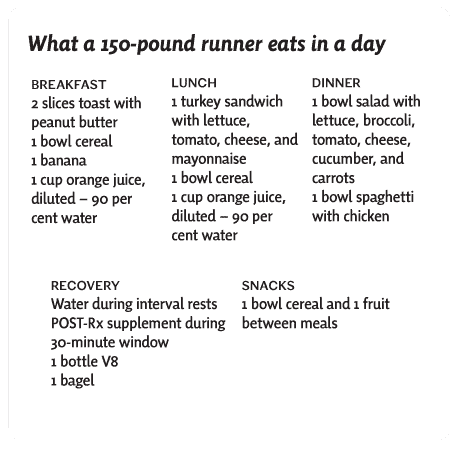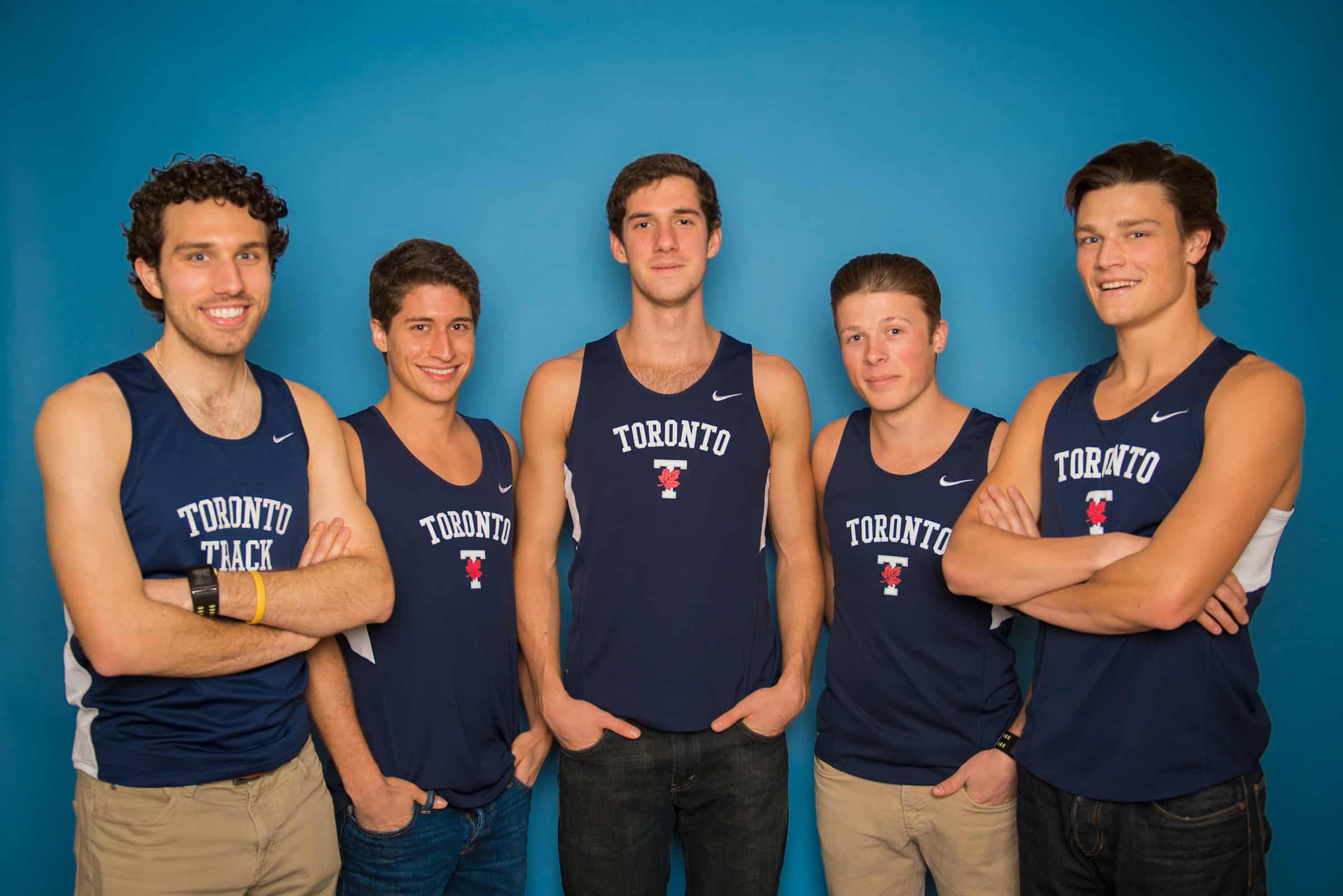There is a broad scientific agreement as to what constitutes a healthy diet for high performance sport.
“Good nutrition is composed of eating small amounts of a lot of different kinds of foods [that are] nutrient-dense per calorie,” says Dr. Debbie Gurfinkel, a nutritional sciences professor at the University of Toronto. “An athlete would want to choose nutrient-dense foods.”
A well-planned eating strategy will help support any training program, promote efficient recovery between workouts, and help you to achieve your best performance whether you are training recreationally or at the elite-level.
“The most healthy diet for everyone is what runners should follow,” says Dr. Michelle French, physiology professor at U of T. “If we’re looking at a plate of food, at least half of it should be vegetables and fruits. [The rest should consist of] some complex carbohydrates, some amount of protein, and a bit of fat.”

Calories
“Your daily calorie needs depend on your age, weight, [fat to muscle ratio], and exercise frequency,” says French.
Gurfinkel claims that an athlete in training may be expending, and therefore, consuming maybe 1,000 calories more per day than the average, relatively sedentary person. And if they’re eating nutrient-dense foods, they’re also going to increase their micronutrient intake within those 1,000 calories.
Energy for exercise
French says that the energy we need comes from a molecule called adenosine triphosphate (ATP). Energy is produced by the breakdown of carbohydrate, fat, and protein, which go through different metabolic pathways to become ATP.
“As you train, you improve a lot of the mechanisms that transport blood to your muscles,” French elaborates. “You can increase your VO2 max, which is the maximum amount of oxygen you can deliver to your tissue. Athletes’ hearts tend to get larger, and that allows them to pump out more blood. The enzymes become more efficient in metabolic processes, so essentially, you’re able to obtain energy more quickly.”
Eating habits of elite runners
“A lot of our diet is geared around workouts, classes, and weights,” says fourth-year Blues middle-distance runner Ethan Davenport. “Timing is everything,” Davenport stresses.
The best pre-race meal consists mainly of carbohydrates, since they’re easy to digest, says Davenport. “I eat something like bread and peanut butter two to three hours before competition.” In particular, foods that contain complex carbohydrates like brown rice, whole grain breads, wheat pastas, and legumes are recommended.
Teammates Alex Denault and Sacha Smart concur. “Five and a half hours before a race, I’ll have a turkey sandwich, says Denault. “And two hours before, I’ll have some peanut butter.”
“It satisfies gastrointestinal needs,” adds Denault. “A lot of people go through a process of trial and error to try and figure out what their bodies like [as well as] how to time their eating.”
French recommends consuming a small amount of food within half an hour after exercising. “The carbohydrate to protein ratio should be 4:1, and athletes should also consider diluting any sports drinks.”
Athletic success, according to Gurfinkel, requires an understanding of your body’s metabolism and adjusting your diet to match the metabolic needs of your chosen sport.
Davenport echoes a similar view about the proper nutrition for athletes. “Your body is a magical, well-oiled machine that’s doing amazing things. Treat it right.”


